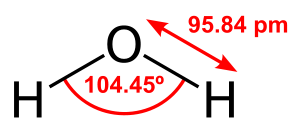Water intoxication
| Water intoxication | |
|---|---|
 |
|
| Water molecule | |
| Classification and external resources | |
| Specialty | toxicology, critical care medicine |
| ICD-10 | E87.7 |
| ICD-9-CM | 276.69 |
| DiseasesDB | 29222 |
| MeSH | D014869 |
Water intoxication, also known as water poisoning or hyperhydration, is a potentially fatal disturbance in brain functions that results when the normal balance of electrolytes in the body is pushed outside safe limits by overhydration.
Under normal circumstances, accidentally consuming too much water is exceptionally rare. Nearly all deaths related to water intoxication in normal individuals have resulted either from water-drinking contests, in which individuals attempt to consume large amounts of water, or from long bouts of exercise during which excessive amounts of fluid were consumed. In addition, water cure, a method of torture in which the victim is forced to consume excessive amounts of water, can cause water intoxication.
Water, just like any other substance, can be considered a poison when over-consumed in a specific period of time. Water intoxication mostly occurs when water is being consumed in a high quantity without adequate electrolyte intake.
Excess of body water may also be a result of a medical condition or improper treatment; see "hyponatremia" for some examples. Water is considered as one of the least toxic chemical compounds, with an LD50 of over 90 ml/kg in rats.
It can be very easy for children under one year old to absorb too much water, especially if the child is under nine months old. Because of their small body mass, it is easy for them to take in a large amount of water relative to body mass and total body sodium stores.
Marathon runners are susceptible to water intoxication if they drink too much while running. This is caused when sodium levels drop below 135 mmol/L when athletes consume large amounts of fluid. This has been noted to be the result of the encouragement of excessive fluid replacement by various guidelines. This has largely been identified in marathon runners as a dilutional hyponatremia. A study conducted on participants of the 2002 Boston marathon found that thirteen percent finished the race with hyponatremia. The study concluded that the strongest predictor of hyponatremia was weight gain while racing (over-hydration), and hyponatremia was just as likely to occur in runners who chose sports drinks as those who chose water. Medical personnel at marathon events are trained to suspect water intoxication immediately when runners collapse or show signs of confusion.
...
Wikipedia
